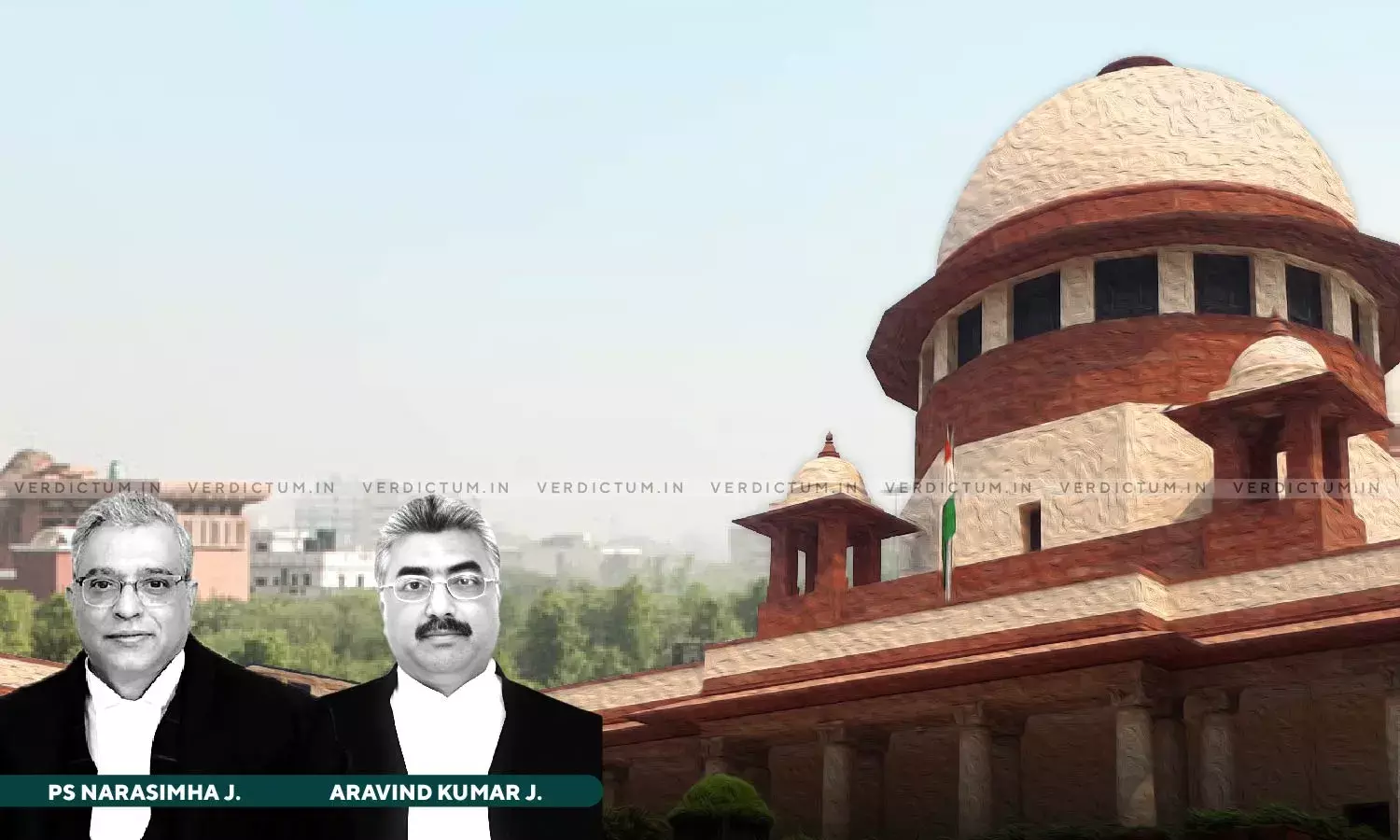S 102(3) CrPC| Non-Reporting Of Seizure Forthwith By Police Officer To Jurisdictional Magistrate Would Not Vitiate Seizure Order: SC
The Supreme Court held that non-reporting of a seizure forthwith by a police officer to a jurisdictional magistrate would not vitiate the seizure order.
The court stated that the obligation to report a seizure to the Magistrate was neither a jurisdictional pre-requisite for exercising the power to seize nor was the exercise of such power made subject to compliance with the reporting obligation.
The court clarified that if the Magistrate finds that there is no reasonable explanation for the delay or that the official has acted with deliberate disregard/ wanton negligence, then it may direct for appropriate departmental action to be initiated against such erring official.
The bench of Justice Pamidighantam Sri Narasimha and Justice Aravind Kumar observed, “In our view, the validity of the power exercised under Section 102(1) Cr.P.C. is not dependent on the compliance with the duty prescribed on the police officer under Section 102(3) Cr.P.C. The validity of the exercise of power under Section 102(1) Cr.P.C. can be questioned either on jurisdictional grounds or on the merits of the matter…The pre-requisite for exercising powers under Section 102(1) is the existence of a direct link between the tainted property and the alleged offence. It is essential that the properties sought to be seized under Section 102(1) of the Cr.P.C. must have a direct or close link with the commission of offence in question.”
AOR Himinder Lal represented the petitioner, while AOR S. Mahendran appeared for the respondents.
The Bench had to determine whether delayed reporting to the Magistrate would, ipso facto, vitiate the seizure order or would delayed reporting constitute a mere irregularity and would not vitiate the seizure order.
The Court traced the legislative history of the responsibility of a police officer to promptly inform a Magistrate about a seizure. Sub-section (3) of Section 102 CrPC was inserted by an amendment in the year 1978 which reintroduced the reporting obligations of a police officer to the Magistrate, as it originally existed in the 1882 Code. The reason cited for inserting the amendment was to overcome a ‘lacuna’ in the law.
“There was no provision in the 1973 Code nor the 1898 Code till the insertion of sub-section (3) by an amendment in 1978, empowering the police to take a bond from a person undertaking to produce the property entrusted to him by the police later on before the Court,” the Bench added.
Clarifying that stance further, the Bench explained that both, Section 457 Cr.P.C. and Section 459 Cr.P.C. contemplated the act of seizure by police to be reported to the Magistrate so that necessary steps could be taken for its custody and disposal. However, the provision of Section 102(1) Cr.P.C., which conferred substantive power on the police to seize property linked to a crime, did not impose on such officers a consequent duty to report the seizures made to the Magistrate.
The Court then considered whether ‘seizure orders’ could be “set at naught” for non-compliance with the procedural formality of reporting such seizure forthwith to the Magistrate.
By the facts of the case, the Court had to determine whether the exercise of the seizure power was subjected to compliance of reporting obligation as illustrated in Section 105E Cr.P.C.
The case involved an exchange of gold chains for allegedly fake gold bars. The appellant lodged a complaint leading to freezing of bank accounts of the accused. However, the Madras High Court allowed the claim of the accused for de-freezing of their bank accounts on the ground that there was a delay on the part of the police in reporting the seizure to the jurisdictional Magistrate.
“The delay in reporting the seizure to the Magistrate may, subject to proof of prejudice, at best, dent the veracity of the prosecution case vis-à-vis the date, time and occasion for seizure of the property,” the Court held.
The Bench also clarified, “It all depends upon the circumstances that may unfold in a given case and there cannot be a straight-jacket formula prescribed in this regard. In that sense, the interpretation of the word ‘forthwith’ would depend upon the terrain in which it travels and would take its colour depending upon the prevailing circumstances which can be variable.”
Accordingly, the Supreme Court allowed the appeal in part.
Cause Title: Shento Varghese v. Julfikar Husen & Ors. (Neutral Citation: 2024 INSC 407)
Appearance:
Petitioner: AOR Himinder Lal; Advocates Roy Abraham, Reena Roy, Adithya Koshy Roy and Anju Kanodiya
Respondents: AOR S. Mahendran
Click here to read/download Judgment



